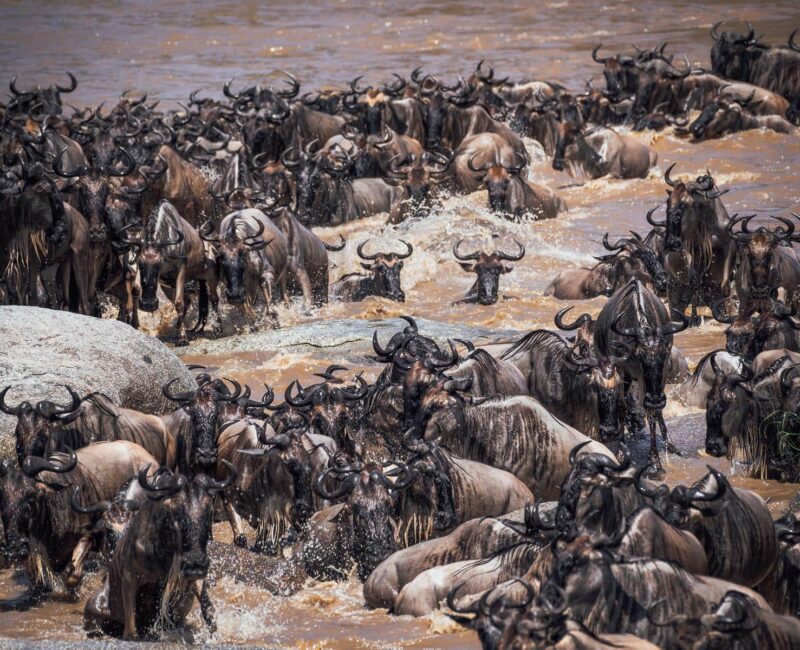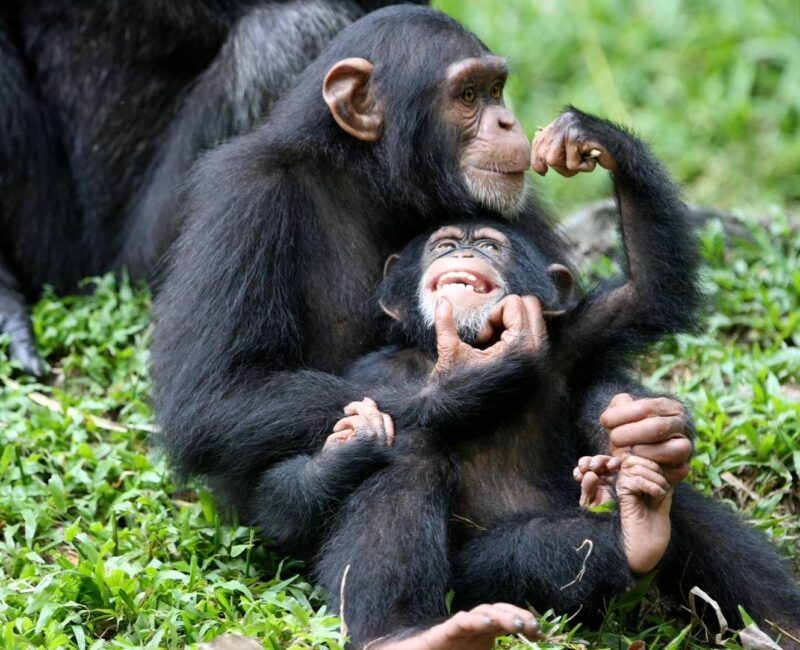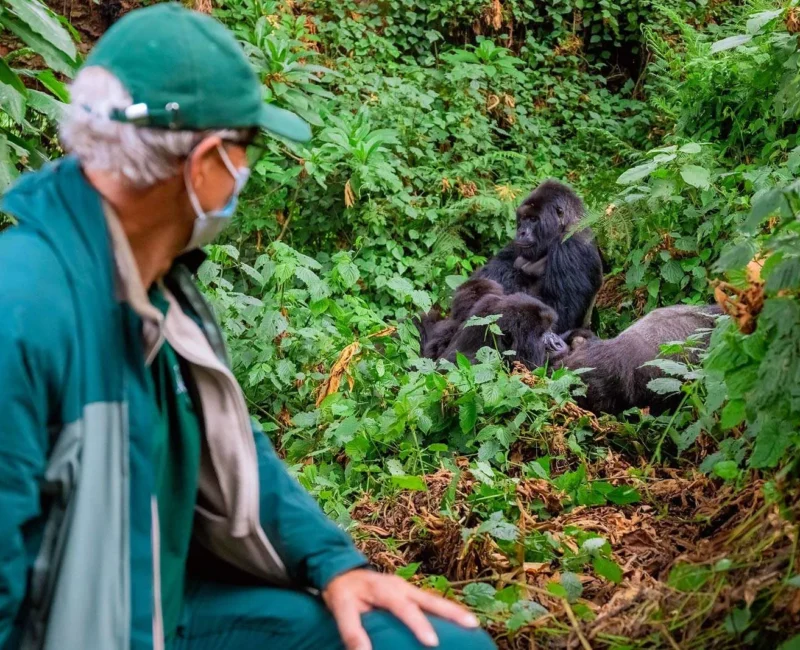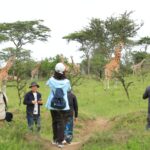
Are Children Allowed on Walking Safaris in Uganda?
September 10, 2025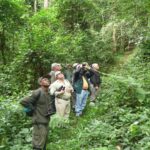
Are Local Bird Guides Available in Uganda?
September 10, 2025Are Chimpanzee Tracking Permits Refundable?
Introduction: Understanding Chimpanzee Tracking Permits in Uganda
Are chimpanzee tracking permits refundable, and how does this affect planning a Uganda Chimpanzee Safari? Uganda is a globally recognized destination for wildlife enthusiasts, offering incredible opportunities for Uganda Gorilla Safaris, Uganda Gorilla Trekking Safaris, Uganda Wildlife Safaris, Uganda Birding Safaris, and Uganda Cultural Safaris. Among these experiences, chimpanzee tracking in forests such as Kibale National Park, Budongo Forest Reserve, and other primate-rich habitats attracts adventurers, researchers, and conservationists alike.
Chimpanzee tracking permits are a critical component of these safaris, as they allow tourists legal access to protected forest areas where chimpanzees roam freely. These permits not only regulate visitor numbers to ensure sustainable tourism but also fund conservation efforts, park management, and local community projects. Asking, “Are chimpanzee tracking permits refundable?” highlights the need for travelers to plan carefully, as these permits involve non-trivial costs and logistical considerations.
Additionally, understanding permit policies enables travelers to combine Uganda Chimpanzee Safaris with other wildlife experiences, such as Uganda Gorilla Trekking Safaris in Bwindi Impenetrable National Park or Uganda Birding Safaris in Mabira Forest. By integrating these activities, travelers maximize the value of their trips while contributing to the conservation of multiple species. Exploring refund policies also encourages informed decision-making, helping tourists align their expectations with the realities of wildlife tourism in Uganda.
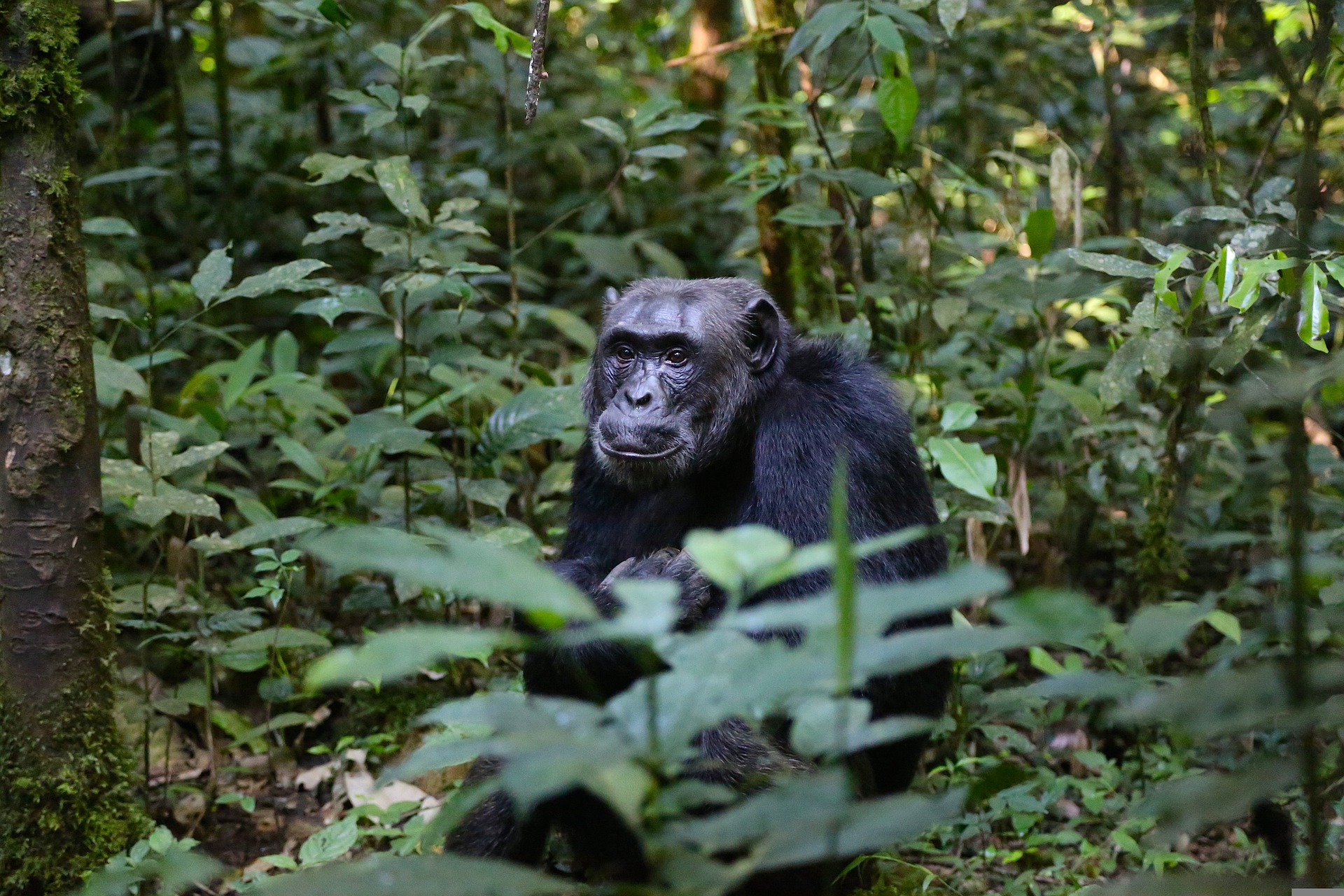
Are Chimpanzee Tracking Permits Refundable?
How Chimpanzee Tracking Permits Work
Are chimpanzee tracking permits refundable, and what is their purpose? Chimpanzee tracking permits grant visitors the legal right to access forest habitats where chimpanzees live in the wild. In Uganda, permits are issued by the Uganda Wildlife Authority (UWA) or authorized partners and are required for all guided tracking activities in protected areas. The permits are often priced according to the park, season, and visitor nationality, with international tourists typically paying higher fees.
These permits serve multiple purposes. Firstly, they regulate the number of visitors to ensure that chimpanzee populations are not disturbed and habitats remain protected. Secondly, the fees collected are reinvested into conservation projects, anti-poaching patrols, habitat restoration, and community support programs. Thirdly, permits provide access to trained guides and professional tracking services, which are crucial for maximizing the chances of encountering chimpanzees safely and responsibly.
Understanding the purpose of these permits is essential when considering the question, “Are chimpanzee tracking permits refundable?” The answer depends on the policies set by UWA and safari operators like Nkofu Africa Safaris. While some circumstances may allow partial refunds, most permits are non-refundable due to their direct contribution to conservation and park management. Travelers benefit from knowing these policies in advance, ensuring smooth planning for Uganda Chimpanzee Safaris or combined adventures with Uganda Gorilla Trekking Safaris and Uganda Birding Safaris.
Refund Policies: What Travelers Need to Know
Are chimpanzee tracking permits refundable, and under what conditions? In most cases, chimpanzee tracking permits are non-refundable because they directly support conservation and park management. Non-refundability ensures that funds are available for ongoing protection of habitats, maintenance of trails, salaries for guides, and anti-poaching operations. This policy is common among wildlife parks globally and is part of responsible tourism practices designed to safeguard endangered species.
However, some exceptions may exist under specific circumstances, such as medical emergencies, travel restrictions, or government-mandated park closures. Safari operators, including Nkofu Africa Safaris, often assist travelers with permit rescheduling or transferring the permit to another date, allowing flexibility while still honoring the contribution to conservation. For instance, if a traveler cannot undertake a chimpanzee trek due to illness, the permit may be used on an alternative date or transferred to another group member depending on the operator’s policies.
Asking, “Are chimpanzee tracking permits refundable?” emphasizes the importance of understanding the financial and logistical commitments involved in a Uganda Chimpanzee Safari. By clarifying refund rules in advance, travelers can plan multi-day itineraries combining Uganda Gorilla Trekking Safaris, Uganda Wildlife Safaris, Uganda Birding Safaris, and Uganda Cultural Safaris without unexpected disruptions. Knowing these policies also reinforces the traveler’s role in supporting sustainable tourism and the ongoing protection of Uganda’s wildlife.
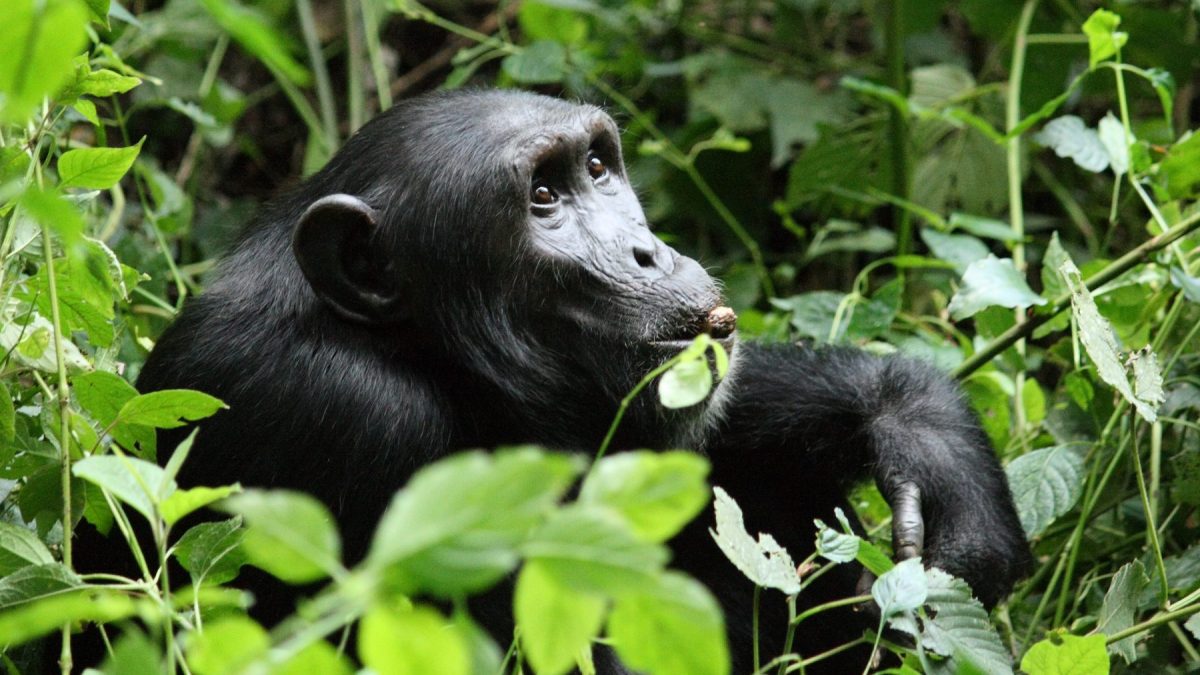
Chimpanzee Habituation Experience in Kibale
Importance of Advance Booking
Do chimpanzee tracking permits have refund restrictions, and why is advance booking recommended? Chimpanzee tracking permits are limited and issued on a first-come, first-served basis to ensure sustainable tourism and minimize stress on chimpanzee populations. Popular locations, such as Kibale National Park, often require reservations weeks or even months in advance, particularly during peak travel seasons.
Booking early not only guarantees permit availability but also allows travelers to plan comprehensive itineraries that may include Uganda Gorilla Trekking Safaris, Uganda Birding Safaris, and Uganda Cultural Safaris. Advance booking also helps safari operators like Nkofu Africa Safaris organize guides, transport, and accommodations efficiently, minimizing logistical challenges.
Understanding refund policies in advance is crucial because non-refundable permits require careful planning. Travelers should coordinate schedules, health considerations, and travel documents to reduce the risk of last-minute cancellations. In cases where rescheduling is necessary, operators may offer flexibility, helping tourists adapt without financial loss while maintaining support for park conservation and local communities. By asking, “Are chimpanzee tracking permits refundable?” visitors gain insight into the planning, commitment, and conservation impact involved in responsible wildlife tourism in Uganda.
Combining Chimpanzee Tracking with Other Safaris
Are chimpanzee tracking permits refundable, and can these treks be combined with other safari experiences? Yes, combining chimpanzee tracking with other wildlife or cultural adventures increases the overall value of a safari while diversifying experiences. Many travelers integrate Uganda Chimpanzee Safaris with Uganda Gorilla Trekking Safaris in Bwindi or Mgahinga, Uganda Wildlife Safaris in Queen Elizabeth National Park, and Uganda Birding Safaris in Mabira Forest.
Multi-activity safaris provide immersive experiences, including encounters with gorillas, chimpanzees, and diverse bird species, as well as cultural interactions with local communities. While chimpanzee tracking permits themselves may not be refundable, the ability to combine activities ensures that travelers maximize their investment and create a meaningful, memorable adventure.
Nkofu Africa Safaris specializes in planning integrated itineraries that include chimpanzee tracking, gorilla trekking, birding, wildlife viewing, and cultural engagements. This approach provides flexibility and enriches the visitor experience while supporting conservation funding across multiple protected areas. Understanding permit policies and combining activities allows tourists to plan seamless Uganda Best Safaris, balancing adventure, wildlife observation, and cultural immersion effectively.
Financial Planning and Permit Costs
Do chimpanzee tracking permits affect safari budgeting, and what should travelers consider? Chimpanzee tracking permits are priced to reflect both the rarity of the experience and the cost of conservation management. Fees vary based on the park, nationality of the visitor, and seasonal demand. For international travelers, permits for Kibale National Park or Budongo Forest Reserve may represent a significant portion of the safari budget.
While these permits are often non-refundable, they are an essential investment in wildlife protection, supporting forest management, anti-poaching initiatives, and local community development projects. Understanding this cost encourages travelers to plan and budget accordingly, allowing for combined experiences with Uganda Gorilla Trekking Safaris, Uganda Wildlife Safaris, and Uganda Birding Safaris without financial strain.
Nkofu Africa Safaris advises travelers to consider permit policies as part of a larger financial planning strategy for their safari. This includes factoring in accommodations, park fees, transportation, guides, and potential supplementary activities such as cultural experiences. By asking, “Are chimpanzee tracking permits refundable?” visitors gain clarity on budgeting requirements, enabling them to plan high-quality, conservation-conscious adventures that maximize both enjoyment and ecological impact.
Conservation Impact of Permit Fees
Are chimpanzee tracking permits refundable, and how do they support conservation? Even if non-refundable, permits play a critical role in sustaining Uganda’s protected forests and chimpanzee populations. Funds from permits are invested directly into habitat preservation, anti-poaching operations, and community development initiatives, ensuring that conservation efforts continue while providing economic opportunities for locals.
Chimpanzee tracking permits contribute to research and monitoring programs, helping scientists track population health, social dynamics, and habitat usage. This information informs management decisions, protects endangered species, and enhances the overall effectiveness of Uganda’s wildlife conservation programs. Combining chimpanzee tracking with Uganda Gorilla Trekking Safaris and Uganda Birding Safaris allows travelers to support multiple species and ecosystems, reinforcing the positive impact of tourism on conservation.
Asking, “Are chimpanzee tracking permits refundable?” demonstrates a traveler’s awareness of the direct relationship between tourism and conservation funding. Even without a refund, the permit represents a valuable contribution to protecting Uganda’s unique biodiversity for future generations.
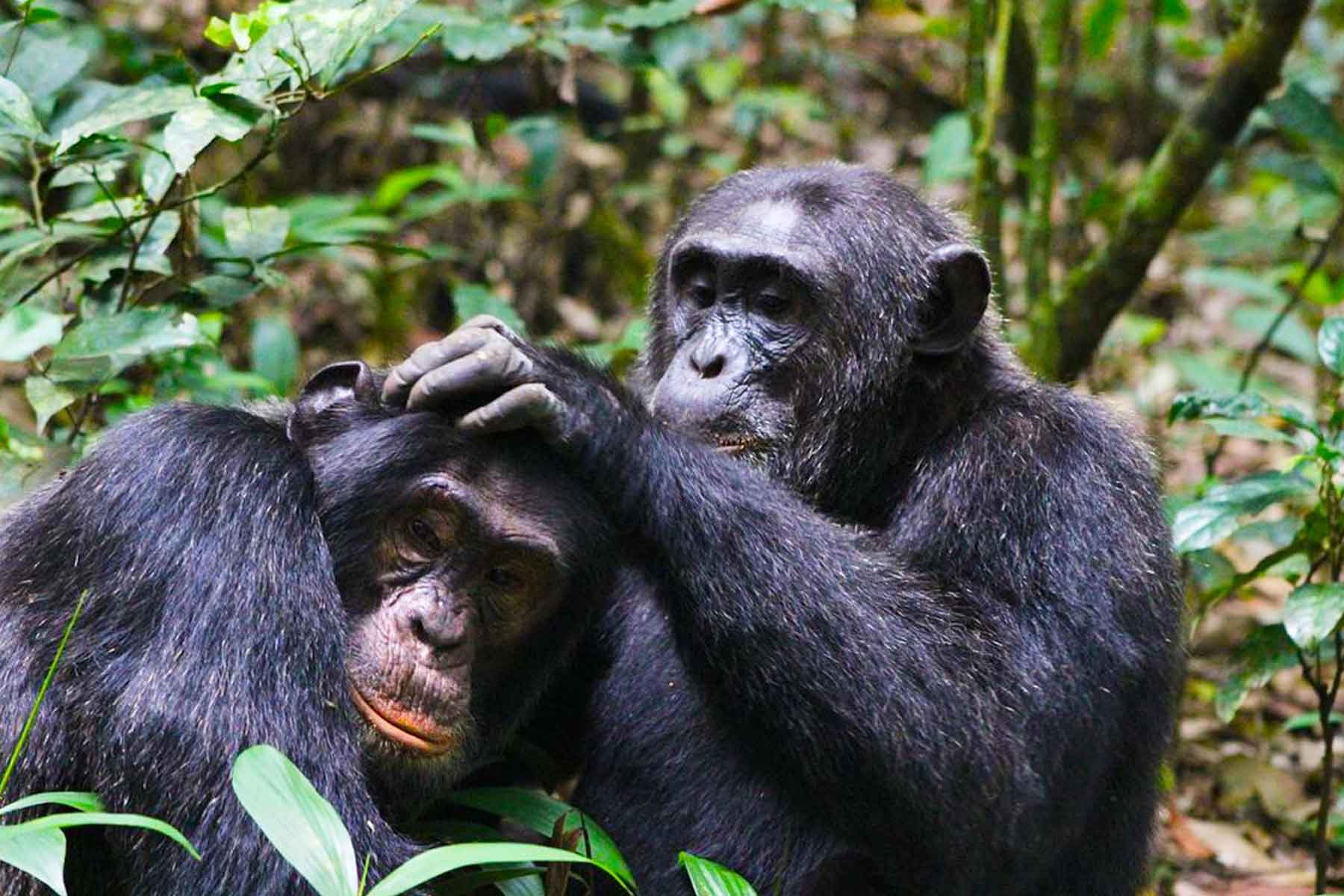
Chimpanzee Tracking in Kalinzu Forest Reserve
Conclusion: Planning Wisely for a Chimpanzee Safari
In conclusion, are chimpanzee tracking permits refundable? Generally, no. Most permits are non-refundable due to their critical role in funding conservation, forest management, and community support. However, exceptions may exist in special circumstances such as illness, travel restrictions, or park closures, and operators like Nkofu Africa Safaris can often help with rescheduling or permit transfers.
Travelers should approach chimpanzee tracking with careful planning, considering permit costs, booking schedules, and potential integration with Uganda Gorilla Trekking Safaris, Uganda Wildlife Safaris, Uganda Birding Safaris, and Uganda Cultural Safaris. Understanding permit policies ensures informed decisions, reduces stress, and allows tourists to maximize the value of their safari experience.
Nkofu Africa Safaris emphasizes responsible, high-quality safari planning, offering expert guidance, integrated itineraries, and conservation-focused tourism. Asking, “Are chimpanzee tracking permits refundable?” encourages travelers to consider the broader significance of permits, including their impact on wildlife protection, ecosystem sustainability, and community development. With careful planning, travelers enjoy a safe, enriching, and meaningful Uganda Chimpanzee Safari that combines adventure, education, and conservation support.

